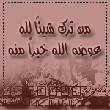
29-05-2012, 05:25 PM
|
 |
عضو مهم
|
|
تاريخ التسجيل: May 2012
المشاركات: 201
معدل تقييم المستوى: 130
|
|
I will complete after Mot3ba's PERMISSION
Vocabulary
Sometimes a student CAN’T EXPRESS herself in English
if she CAN’T FIND the words she needs.
OR if the word she chooses DOSEN’T FIT in the language situation she is involved in.
Such problems and many others are the results of bad vocabulary teaching.
How can I avoid that?
Your aim is that your students will be able to ….
* recognize the word, recall it, relate it to an appropriate object or concept.
* use the word in an appropriate grammatical form,
* pronounce and spell the word correctly.
And finally…* use it correctly in her written and spoken language.
Some techniques in teaching vocabulary
* Demonstrating the words using real objects or acting ( using body language)
* Visual aids ( photos, drawing, slides, video films …)
* Explaining the words by describing and defining objects or giving synonyms & antonyms.
* Making a meaning bridge between English & Arabic.
Alphabet
Sugar Tomatoes
Lemon Potatoes
Cup
Meaning bridge
Avoid TRANSLATION and never spend too much time on English meaning of such words.
Do’s
*Use real objects around you at school
or at home OR draw or print pictures
from CDs or clipart sites.**
*Use instructions in English accompanied
with adverbs e.g. (write quickly).
*Introduce new vocabulary in context.
*Use the new vocabulary in your lessons.
*Be sure that you checked the pronunciation
of the new vocabulary.(There are CD’s
that can help you.) **
Don’ts
*Don’t waste your time drawing or explaining a word that’s available as a real object e.g.( ******) , model or picture.
*Don’t use Arabic for instructions and orders.
*Don’t present isolated words.
*Don’t neglect them in future classes
*Don’t be always sure that you know the pronunciation.
Ways to explaining the meaning of vocabulary
Demonstration:
* Direct connection using real objects or pictures for concrete objects in the classroom or school environment e.g. (pencil, door ..)
* Acting items involving movement e.g.(walking, writing…)
Explanation:
*Describing and defining words or deducing the meaning from context.
*Giving synonyms ( lorry = truck ) or antonyms ( stand up X sit down )
* Col******** e.g. water (water tap – water tower – water pump – water cycle)
It is the ways words combine to produce natural-sound speech of writing.
Visual Aids:
Using photographs, drawings, maps, slides, transparencies, video films, CDs **
Steps to presenting new items through visual aids
• Show the objects without any writing.
• Say the word for each one aloud.
• Show the mouth movement in saying the words.
• Point to the objects randomly and ask the students to tell you the words.
• Show the written forms on the board and get the students to
relate the objects to the words.
Games
1- Jumbled letters:
Each team (or pair)is given letter cards. They should arrange the letters to form a certain word.
2- The odd word:
Each team takes out the odd word out of a group of words . e.g.
(table , chair , desk , cup , sofa )
3- Letter X:
Students are asked to write as many words as they can starting with a specific letter.
4- My Happy Pie:
The inside circle is for the words you want to get examples on . e.g (Furniture). In the pieces of the pie students can
come out and write examples like (bed, sofa…)
(It can be drawn and covered with plastic to write & erase)
*For other games this book would be of great help:
(Language Teaching Games) by …. Lee,W.R.

|